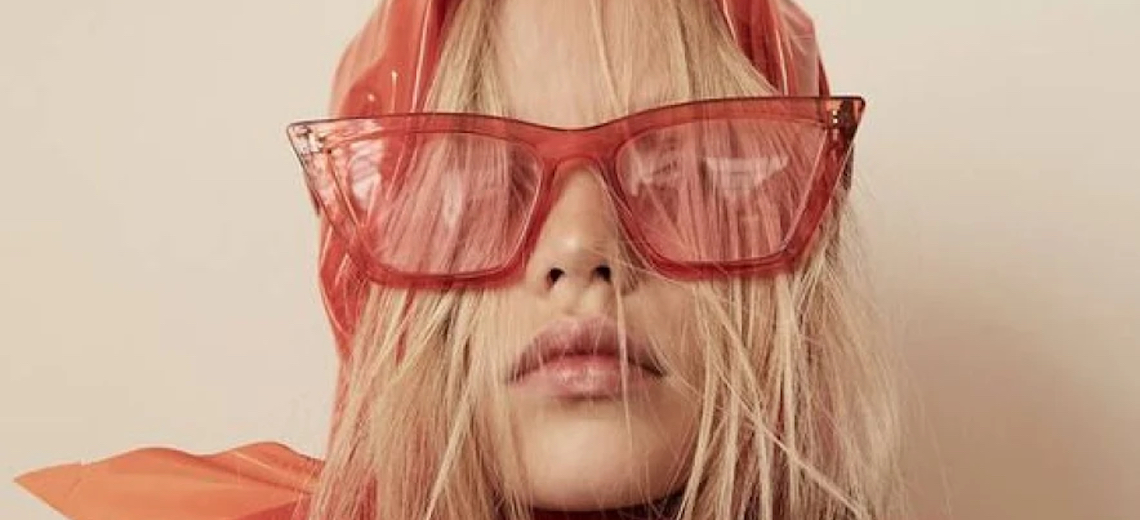Detailed descriptions of labor standards, production materials and animal rights policies can be found alongside luxury dresses and skin care at a new retail pop-up in San Francisco.
On November 6 through November 14, luxury e-tailer Toward is hosting an anti-greenwashing pop-up shop featuring fashion labels including Collina Strada, Rejina Pyo and Yuzefi, and beauty brands like Furtuna Skin, La Bouche Rouge and Bolt Beauty. Following Toward’s launch on August 5, its first physical presence will feature screens throughout the space with QR codes to scan for information about the platform’s vetting process for ethical and sustainable production. Toward joins a growing range of ethics-focused luxury platforms such as Maison de Mode, as well as mainstream luxury e-tailers aiming to offer sustainable or conscious curations.
“A main issue in the greenwashing discussion is that a lot of brands, companies and retailers say they’re sustainable, but there’s no clear definition of what that means or what initiatives they have in place, or even how they hold themselves or their brands accountable,” said Ana Kannan, founder of Toward.
One year after graduating from USC in 2020, Kannan founded Toward after struggling to find retailers with the ethical and sustainability standards she wanted. She wasn’t alone. According to a 2020 report by Compare Ethics, only 20% of luxury consumers trust brands’ sustainability claims.
Toward’s new pop-up displays a list of the more than 100 questions that Toward uses to vet brands for its platform. Standards are based on those set by a variety of organizations, such as The World Society for the Protection of Animals and the Global Organic Textile Standard. The nine broad categories it looks at are transparency, emissions, materials, waste and chemicals, workers’ rights, water management, animal welfare, biodiversity and forestry, and ethos. Brands must repeat the survey on an annual basis to continue to be sold at Toward.
In addition to the amount of time that goes into vetting, there are other reasons this business model isn’t easy. Asking brands for certain information has been challenging, said Kannan. One factor that eliminated several brands from consideration was Toward’s request for a full list of factories.
“A lot of brands — some beauty ones, in particular — were not very comfortable” with providing a full factory list, said Kannan. “Because we really want to be as trustworthy as possible, we couldn’t then let those brands onto our site.” To allay brands’ concerns, the platform offered to sign NDAs in order to keep factory information confidential.
Ad position: web_incontent_pos1
The lack of transparency in the information brands typically offer retailers demonstrates how hard it is for consciously minded consumers to get the full picture of a brand.
“People here are very conscious about the way they shop,” said Kannan. But still, “it’s harder for consumers to individually go out and do the research on the brands themselves,” she said. “To get to the level of granularity that we got to, it requires hours and hours of research.”
Luxury and premium retailers in beauty and fashion are increasingly adapting to ethically minded consumers. Sephora, for example, added a “Clean + Planet Positive” designation to qualifying brands in July this year, while Credo Beauty has been expanding its sustainability standards. In fashion, Net a Porter offers a sustainable brands section, while Farfetch has a “conscious” edit with brands like Stella McCartney as well as pre-owned luxury products.
In addition, the biggest focus among consumers is on clean beauty right now, followed by the waste of the packaging in front of them, she said.
“When we go into transparency and working conditions” in the production process, “that is a place where consumers have not really explored yet, and it’ll take a little bit of time to get there,” said Kannan.
Ad position: web_incontent_pos2
Toward’s target customer is 25- to 47-years-old. Yuzefi, Agolde and House of Sunny have been its best-selling fashion brands, while Circumference and Furtuna Skin have been popular in beauty.
The retailer has done a pre-seed family and friends funding round so far, and has plans to raise seed funding early next year. When pitching VCs, the key has been to show that ethically minded shopping can help the bottom line.
“They’re very interested in the concept,” said Kannan, of VCs. “A lot of them have told me that what they’re really looking for is just traction and sales. And that is basically what we’re focusing on at this point, because we’ve really nailed the responsibility part and the vetting process. What’s really important for us now is generating sales and brand awareness.”




